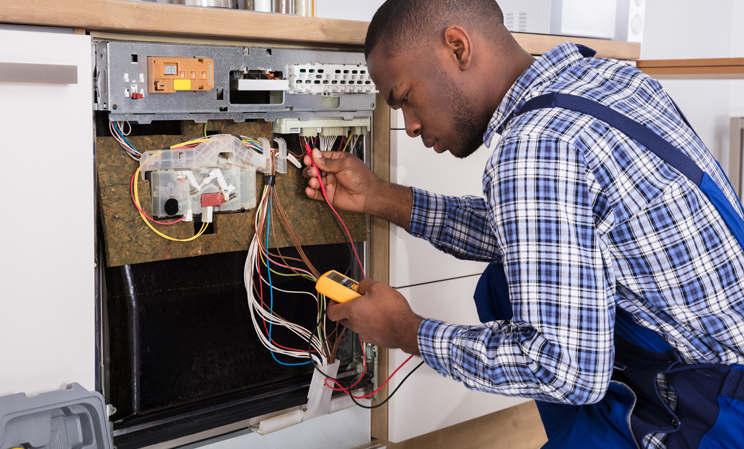Don't Get Sunk By These 4 Major Unexpected Expenses

So many tales of debt began with an unexpected expense and a lack of savings to cover it. This often starts the vicious cycle which many people have trouble escaping years later. However, there are ways to anticipate and deal with some major categories of unexpected expenses that might impact anyone.
1. Car Repairs
Everyone dreads the unexpected auto repair bill. If you own a car, chances are that it will happen to you sooner or later. You may be facing a bill for thousands of dollars just to keep your car on the road. When your car is in the shop, you might need to spend hundreds more on a rental car or on Uber rides.
One way to avoid major repair bills is to keep up with all the routine maintenance on your car as needed. Your car has a maintenance schedule that should be followed when you drive past certain milestones. While this will not completely eliminate the risk that major repairs will be necessary, it will keep your car in better shape.
Another backstop to prevent major unexpected repairs is to purchase a service plan or an extended warranty for your vehicle. Although the service package may not cover every single repair, it will drastically cut your repair bills and give you peace of mind that an emergency car repair will not drive you into debt.
2. Home Repairs
Things inside your home break with regularity. It is a fact of life and part of being a homeowner, especially when you live in an older home. In addition, the things inside your home can malfunction, causing high bills to repair or replace them. Your refrigerator or washing machine always seems to be on the fritz at the absolute worst time for your personal finances.
Your situation can get even worse if something like an HVAC system breaks. This could cost thousands of dollars to replace. Like your car, you can keep household appliances and other major infrastructure running better through routine maintenance and inspection. Getting things fixed the moment you recognize there is a problem can prevent a smaller problem from becoming a bigger one.
Further, buying a home warranty can help shield you from some of the worst repair and replacement expenses. Home warranties are not limited to when you first buy a home. Any homeowner can purchase a warranty at any time. You will be happy that you did when you are hit with your first major repair bill that is covered by the warranty.
Spending money on a good homeowners insurance policy is another way to protect your bank account from the unexpected. Paying a little extra for extensive coverage can stop major damage to your home from driving you deep into debt.
3. Medical Bills
Much like objects can break down and cost you money to address, know that the same thing can happen with your own body. Even for those with health insurance, health care can get very expensive very quickly. There are co-pays and deductibles as well as costs for prescriptions. All of these can add up in a hurry.
Of course, the first thing to do is to make sure that you have health insurance. While it is expensive, the costs of not having health insurance are simply too high to bear. Just like preventative maintenance is necessary for an appliance, it is a must for your body too. Taking good care of yourself and seeing the doctor for a physical every year are the first steps to take toward lowering health care expenses.
Even on top of having health insurance, there are some ways to cut your costs. For instance, if you are on the healthier side, you can get a high deductible plan which will cost you less each month. You can also seek treatment from urgent care as opposed to emergency rooms since they have lower co-payments.
4. Job Loss
Although it is usually not possible to avoid losing your job, you can prepare yourself for the possibility that it may happen. Especially in a down economy, job loss can occur at a moment's notice. The loss of a paycheck has the potential to drive a household deep into debt, especially if they did not enter the crisis with any savings.
There are some ways to blunt the blow from losing a job. While you should not walk around expecting to lose your job at any second, you can always be ready to roll with a plan if the worst happens. One thing is to always keep your resume up to date and have a few job-specific versions so you can start applying to new jobs immediately.
Another idea is to have a background knowledge of your state's unemployment system so you can promptly apply for benefits without having to struggle. Finally, you can keep a side hustle plan in the back of your mind to at least earn some money to keep you afloat while you are looking for a new long-term position.
Have an Emergency Fund
We cannot stress enough the importance of starting an emergency fund to deal with these types of expenses. It can soften the impact of an unplanned emergency and keep it from plunging you into debt. Try to put a little each month into an emergency fund that will eventually be enough to cover at least one major unplanned auto repair. This will give you peace of mind now and in the future.
Unexpected expenses do not need to force you to borrow money. While you may still need to scramble a bit, some planning in advance can help limit the repercussions.
